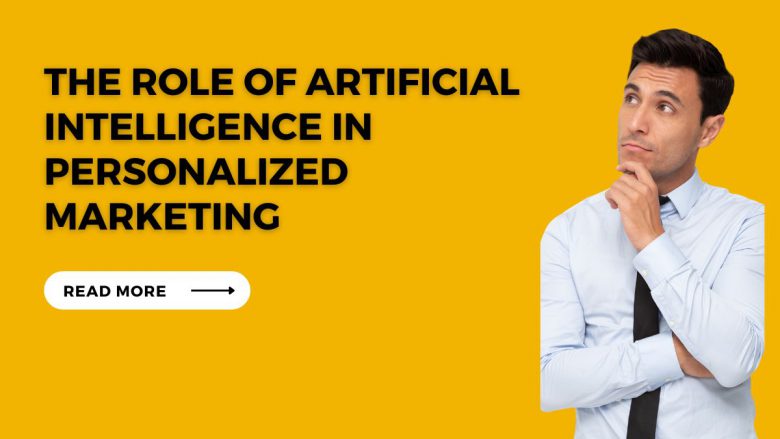
Personalized marketing has become a key strategy for businesses aiming to deliver relevant and tailored experiences to their customers. In the digital age, artificial intelligence (AI) plays a vital role in enabling personalized marketing at scale. In this blog post, we will explore the significant role of AI in personalized marketing and how it empowers businesses to leverage data-driven insights, enhance customer experiences, and drive better results.
Understanding Personalized Marketing:
Personalized marketing involves tailoring marketing messages, offers, and experiences to individual customers based on their preferences, behaviors, and demographics. It goes beyond generic mass marketing to deliver highly relevant and personalized content to each customer. The benefits of personalized marketing are substantial, including enhanced customer engagement, improved conversion rates, increased customer loyalty, and higher customer lifetime value. By creating a more meaningful and personalized relationship between the brand and the customer, personalized marketing drives business growth.
The Power of Artificial Intelligence in Personalized Marketing:
Artificial intelligence, with its ability to process and analyze vast amounts of data, plays a pivotal role in personalized marketing. AI-powered algorithms can extract valuable insights from customer data, including demographics, purchase history, browsing behavior, and interactions with the brand. By leveraging these insights, businesses can segment their audience effectively and deliver tailored marketing messages, offers, and recommendations.
AI-powered recommendation engines are a prime example of personalization in action. These engines analyze customer behavior and preferences to suggest relevant products or content. By understanding individual customer preferences, AI algorithms can recommend products or content that align with their interests, increasing the chances of conversion and customer satisfaction.
Chatbots are another example of AI in personalized marketing. These virtual assistants can engage with customers in real time, providing personalized recommendations and assistance. By leveraging natural language processing and machine learning, chatbots can understand customer queries and provide tailored responses, creating a more personalized and efficient customer service experience.
Predictive analytics is a powerful AI-driven technique that enables businesses to anticipate customer behavior and needs. By analyzing historical data and patterns, predictive analytics algorithms can forecast customer preferences, purchase intent, and future actions. This information helps businesses optimize marketing strategies, tailor messaging, and allocate resources effectively.
Ethical Considerations and Data Privacy:
Artificial Intelligence (AI) has revolutionized the way marketers interact with customers. The technology is capable of providing personalized experiences to individuals based on their preferences, behavior, and interests. However, AI-driven personalized marketing raises ethical concerns that cannot be ignored. As data privacy becomes a pressing issue for consumers worldwide, businesses need to address these ethical considerations before implementing new technologies.
The first ethical consideration is transparency. Customers must know how their data is being collected and used by businesses to offer personalized experiences. Businesses should provide clear information about data collection and use policies in understandable language. Moreover, companies should obtain consent from customers before collecting any personal information such as name, email address, phone number, or credit card details.
Another important consideration is security measures to protect customer data from unauthorized access or misuse.
Conclusion:
Artificial intelligence is revolutionizing personalized marketing by leveraging data-driven insights to create tailored customer experiences. From recommendation engines to chatbots and predictive analytics, AI enables businesses to understand customer preferences, anticipate needs, and deliver highly relevant content and offers. Embracing AI in personalized marketing empowers businesses to engage customers on a deeper level, drive better results, and build long-lasting customer relationships in the digital era.


